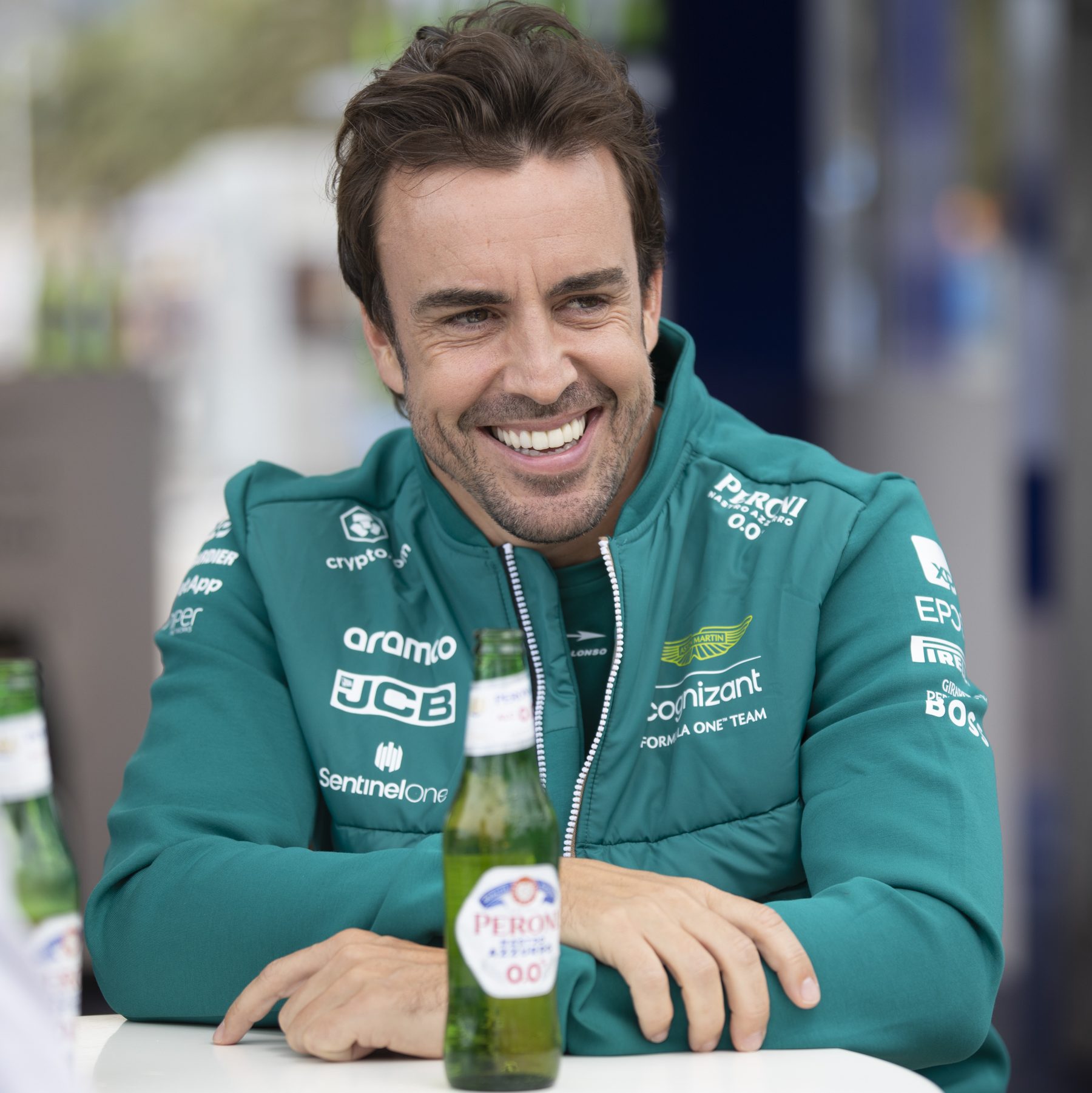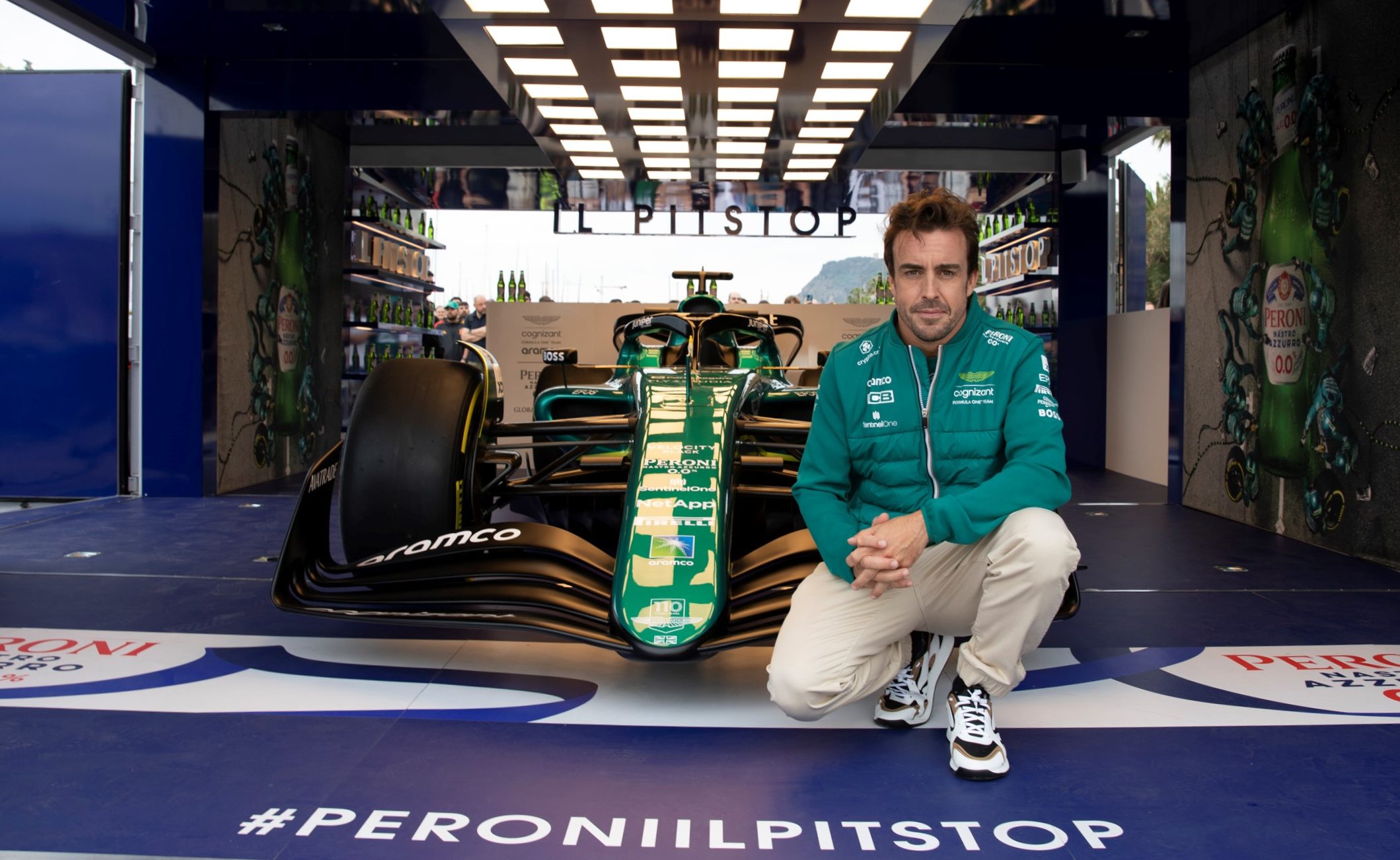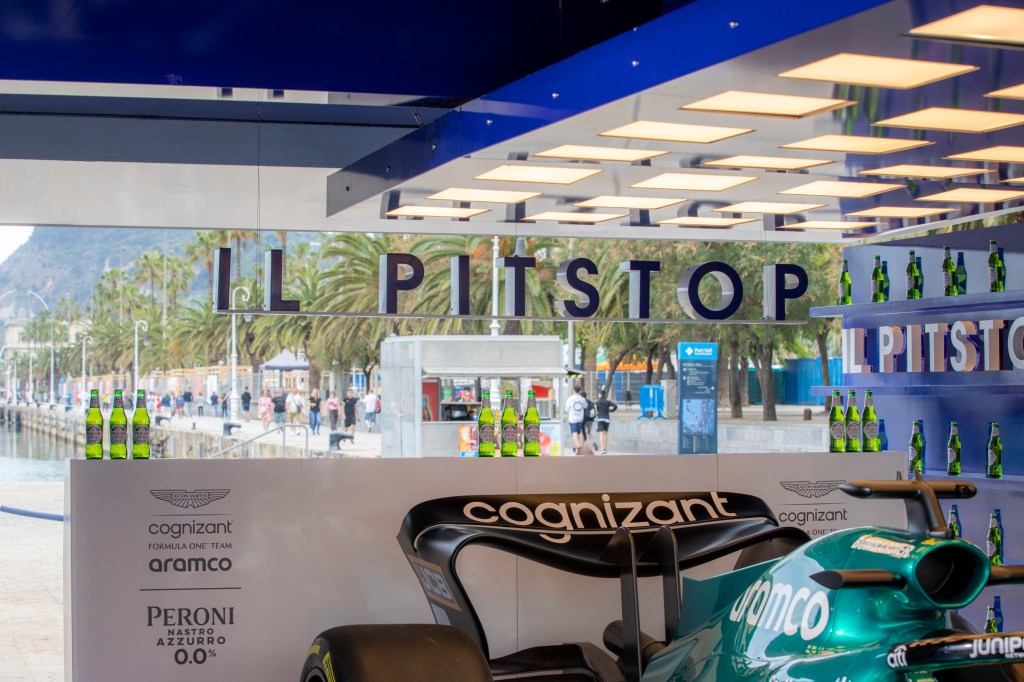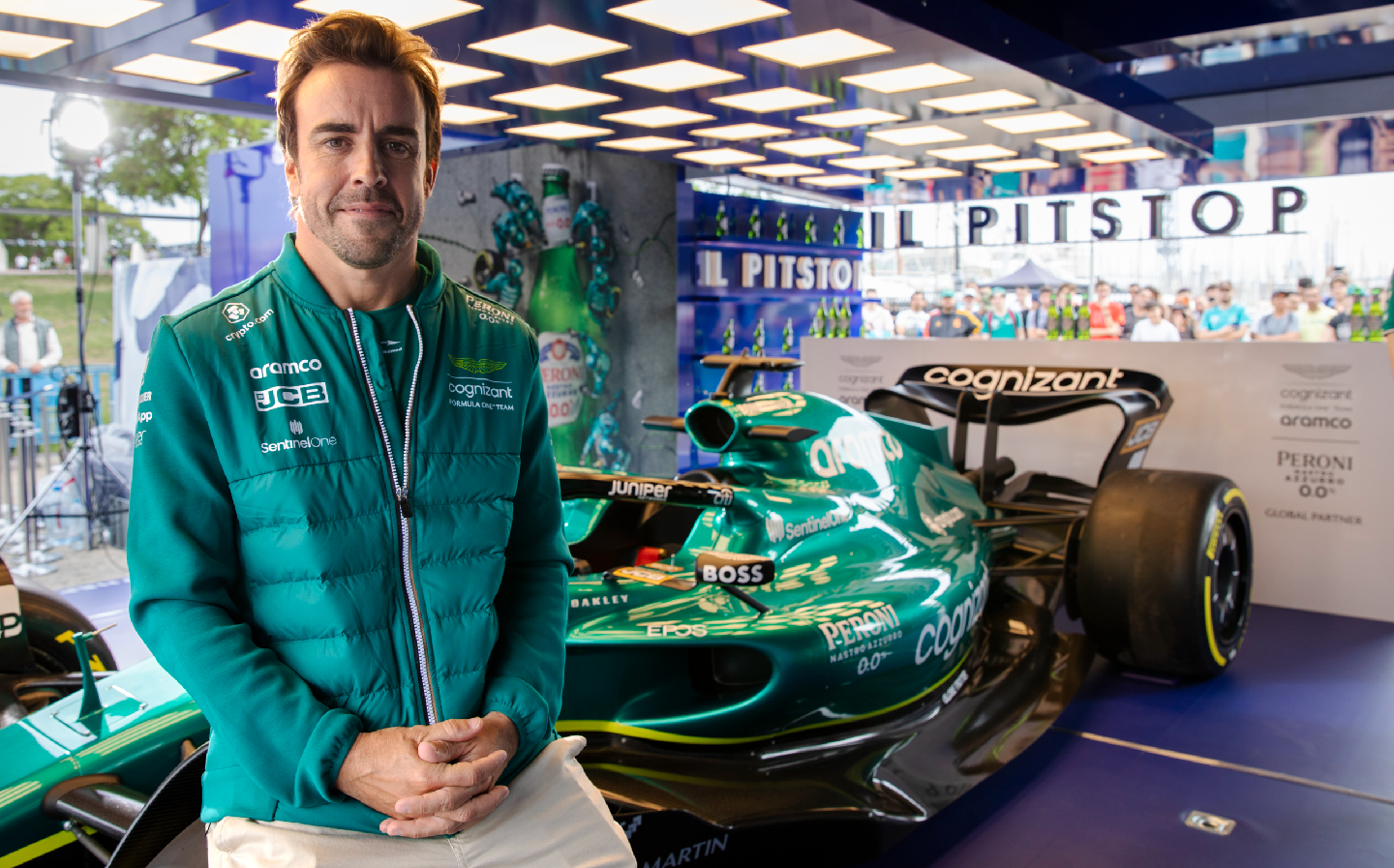Fernando Alonso on his triumphant F1 return and why he still has something to prove
Winning the Dakar Rally is still a major goal for Spanish superstar driver
No-one saw it coming. The start of the 2023 Formula One World Championship has been phenomenal for the Aston Martin team, and in particular its star driver Fernando Alonso, on the back of two lacklustre seasons. In both 2021 and 2022, the Silverstone-based outfit finished seventh out of ten teams. After six races this year, Aston sits second in the constructors’ table with Alonso a strong third in the drivers’ championship, behind a dominant Red Bull team.
It’s even more remarkable considering the two-times world champion retired from F1 at the end of the 2018 season, having become disillusioned with the McLaren team and F1 in general. He mounted a comeback with Alpine in 2021 before making the shock decision to jump to Aston Martin for 2023. It proved to be an inspired move for Alonso, now 41, and has shown the world he still has every ounce of talent that won him two world drivers’ championships.
Ahead of his home race, the Spanish Grand Prix in Barcelona, Alonso, 41, sat down with Driving.co.uk to discuss the reasons behind his F1 retirement and phoenix-like comeback, as well as his remarkable success with Aston Martin, how his experience in other disciplines such as Le Mans and Indycar has helped, and why he still has something to prove in the Dakar Rally.
David Green: Fernando, would you have imagined at the end of the 2018 season, having walked away from Formula One, that you’d be here on the eve of the Spanish Grand Prix, third in the championship after a strong second place in Monaco?
Fernando Alonso: Yes! […laughs] I don’t know, I think when I retired I was thinking that in 2021 it would be new regulations coming so there could be a possibility to go back to Formula One, and with more even cars, budget cap and more standard parts for everyone, the cars and the performance eventually would get that little bit closer. When I left in 2018 only Hamilton and Bottas could really challenge for a win and I thought that maybe in the future there’s an opportunity so, yeah, this could be in my head.
David Green: You certainly seem to be enjoying it, but at the weekend [in Monaco] when you were speaking to the engineer on the radio you said, “I’m pushing like an animal mate!” — the fire’s obviously still there?

Fernando Alonso: Yes, it’s still there, it has been always there. It doesn’t matter if I’m fighting for world championships or for fourteenth place, when I close the visor I still feel the same fire inside. And, yeah, I’m enjoying obviously when I’m fighting at the front, but let’s say outside the car it did change. You know, [with] the success I’m enjoying it more [but] inside the car it has been always the same.
David Green: And would you say at this stage in your F1 career, the challenge is more physical or mental?
Fernando Alonso: I think both. I think physically obviously it is demanding. Formula One has been always demanding with the G-forces that we have in the car. I have to train harder than when I was 20; I have to keep myself fit; I have to control what I eat; how much I sleep much more than when I was 20, that’s for sure.
But also mentally I think we have more races now in the calendar, we have more events, we live in a different world. There is obviously the social media as well. There are a lot of new generation of fans following the sport as well, which they need different things than in the past. So I think it is also more demanding in different ways.
David Green: I’ve always thought that sportsmen often retire because they’re bored and tired, but then they often grow to regret that decision. You seem to be in this amazing sweet spot now where you can really appreciate the privilege of driving F1 and enjoy it, but you still have all the talent to compete. Is that how you see it?
Fernando Alonso: I do agree. I think when I stopped Formula One I had in my head different challenges — I have the Indy 500, the Le Mans 24 Hours and the Dakar Rally — and while I complete those and I tick those boxes and I really enjoy those experiences, in a way I missed Formula One on those years because Formula 1 is still very unique; where you are living throughout the year, the travelling around the world, those amazing organisations behind those two cars.
So yeah, I think it was good to step back those two years and then come back with fresh energy, reset myself a little bit and see the things from the other side as well.
I remembered really not enjoying that much the national anthem and some of the things that we need to go through before the races, because I thought it was just an unnecessary thing to do before jumping in the car. But then watching the races at home I realised how important those kind of things are for the show, so now I think I embrace the whole thing a little bit better.

David Green: So it’s true that youth is wasted on the young and you can enjoy things more now?
Fernando Alonso: Yes […laughs]. For sure.
David Green: It certainly seems to be that way for the fans, who seem to be enjoying you more. I can almost feel the global collective cheer when you go for an overtake. A sense that everybody’s behind you. Do you get a sense of that now when you’re in the car?
Fernando Alonso: Yes, I do. I think there is, as I said, a different generation following Formula One [now] than in the early 2000s, when I won the championships. I think their parents were following me and now they’ve discovered the sport. The whole world, especially here in Spain, they rediscovered Formula One.
There is more access to everything in Formula One now; different content. There are more passes to go to the paddock; there are affordable tickets. I don’t know, there is a different way of living the sport now.
And green is the colour now that everyone wants to join. I think if you are a Formula One fan probably you have a Ferrari cap somewhere at home, and maybe you have a Red Bull cap because they won championships in the past. If you go to a race now and you go to the merchandising store you buy something green because they are everywhere. So I’m happy to be part of this Aston Martin movement now.
“I thought playing the national anthem was just an unnecessary thing to do before jumping in the car. But then watching the races at home I realised how important those kind of things are for the show”
David Green: We’re at the Peroni Il Pitstop here in Barcelona, which is a way of bringing the sport to the fans who can’t get to the race. How important is it for you being here racing in Spain and seeing the fans?
Fernando Alonso: It’s amazing. Obviously every time I come here I feel a different energy. I feel the passion from the fans which are very different in Spain or South America. We live the sport like a football match so there is this different energy, and, yeah, thanks to Peroni as well we bring the fans to Formula One and the Pitstop.
As I said before, I think back in the 2000s this was not the content that the Formula One teams were given, so I think it’s a new sport now.
David Green: Obviously you’re having tremendous success with Aston Martin at the moment and everything is clicking into place. You’ve got a great car underneath you that is getting close to the front and you’re doing so well. But you mentioned earlier about your departure into other motor racing series. How much of a practical benefit to your driving was trying Le Mans, Indycar and the Dakar?
Fernando Alonso: It was. It was a benefit because I think I challenged myself in terms of different driving techniques, different racing philosophies. Especially endurance racing when you have to share the car for 24 hours with other drivers. The level of trust that you need to put on them, the level of trust on your engineers.
I think when I went back to Formula One I was a better driver and a better person as well because there were some professional challenges but also some personal challenges. At the Dakar Rally you have to cross the whole Saudi Arabia in 12 days with just one man sitting alongside you. So I think on a personal side I was a better man as well.



David Green: Just thinking about those multi-discipline experiences you had, you didn’t just compete, you were also very competitive. Is there a romantic element for you to emulate the great drivers of old — doing what they did in a number of series when people don’t expect, or think, that it’s possible in the modern era?
Fernando Alonso: Absolutely. Absolutely. I think that was something that was common in the past, but not anymore now because every series, every category, is so professional.
You have to develop your skills from a very early age. If you are an Indy car driver from a very young age you go in the dirt oval and then into Indy car. If you go to Formula One from karting you develop certain skills, you go to the Junior Formula, some Formula One academies as well, and the simulator, all these things.
But it is now very difficult to see a Formula One driver doing the Dakar Rally because they are completely opposite.
So, yeah, it was a challenge for myself to really learn from zero and become a beginner again, you know, and have to learn. Even if I have all the success in Formula One, I have to learn from the best ones in each of the disciplines, so that was very interesting.
David Green: …and clearly successful.
Fernando Alonso: It was. But there are still some boxes that I still need to be complete — the Indy 500; the Dakar. I think, at the moment, after Formula One I’m more into trying Dakar again because I think it was the most extreme experience that I had, and the most different. There cannot be anything more different than Formula One and a Dakar Rally.
David Green: To get a second place on a stage in Dakar on your first attempt is extraordinary … especially given how singular the skill set is for that.
Fernando Alonso: Yes, exactly, so that’s a challenge that I have inside, one day to win Dakar because that will be unprecedented in motorsport.
“After Formula One I’m more into trying Dakar again because I think it was the most extreme experience that I had, and the most different”
David Green: So that’s your broader motorsport goal; what about Formula One goals?
Fernando Alonso: Winning a championship.
David Green: Naturally. So, which Aston Martin has Lawrence Stroll promised you if you win a race?
Fernando Alonso: [Laughs] Nothing really, nothing really, but it would be interesting to ask him. But I think Lawrence… look, he’s an incredible leader in the team. I think I had similar experience as well with Flavio [Briatore] back in Renault, where maybe they don’t have the technical background to know everything about Formula One, but they are very interested in learning. They have this power of leadership and this ability of managing 800 people in a very natural way, and it’s exactly what you need from the team principal or the owner of the team.
David Green: Do you think it’s a benefit that he wasn’t involved in Formula One in the past?
Fernando Alonso: I think so. I think if you’re in Formula One all your life you take certain things for granted. I think you need to come from somewhere else and see Formula One as a product; as something where you need to implement your ideas and not to follow the things that have been done in Formula One for years.
David Green: Well, it certainly seems like a very successful partnership and hopefully you’ll go on to race and championship wins together.
Fernando Alonso: Thank you. Hopefully, cheers.
With thanks to the Aston Martin Aramco Cognizant Formula One® Team and Peroni Nastro Azzurro. Visit https://peroniitalia.com/il-pitstop for more information about the IL PITSTOP immersive experience.

Related articles
- If you enjoyed this interview with Fernando Alonso you might be interested to read our race reports for the F1 season and to see the schedule of races this year.
- Aston Martin DB12 revealed with V8 power and 200mph+ top speed
- Jeremy Clarkson’s first review for The Sunday Times: 1993 Aston Martin Vantage
Latest articles
- Should I buy a diesel car in 2025?
- F1 2025 calendar and race reports: The new Formula One season as it happens
- Zeekr 7X AWD 2025 review: A fast, spacious and high tech premium SUV — but someone call the chassis chief
- Denza Z9GT 2025 review: Flawed but sleek 1,062bhp shooting brake from BYD’s luxury arm
- Extended test: 2024 Renault Scenic E-Tech review
- Best-selling cars 2025: The UK’s ten most popular models of the year so far
- Audi A6 Avant 2025 review: Trusty executive estate ticks expected boxes, and there’s still a diesel option
- Keir Starmer eases pressure on carmakers to sell EVs in response to ‘global economic headwinds’
- Ferrari 12Cilindri Spider review: Heady blend of traditional and futuristic becomes even more intoxicating after lid is removed














